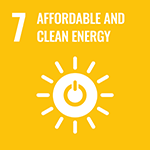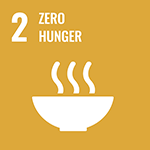Integrated Sustainable Energy and Food Production from Microalgae-based Carbon Capture and Utilization
Principal Investigator


Prof.
Padjadjaran University
SUBROTO Toto
ODA Recipient Country
Republic of Indonesia
Research Institutions in Japan
RIKEN / The University of Tokyo / Euglena Co.Ltd
Research Institutions in Counterpart Country
Padjadjaran University / Bandung Institute of Technology / Indonesia University of Education / Gadjah Mada University / National Research and Innovation Agency / Jawa Power / Awina Sinergi International
Adoption fiscal year
FY 2022
Research Period
5 Years
Overview of the Research Project
Technology to make fertilizer and fermented foods from microalgae
Indonesia is highly dependent on coal for its energy, and needs to lower its carbon emissions or decarbonize its coal-fired power stations. Malnutrition among the poor is also a serious issue, and new industries that can eliminate malnutrition and contribute to healthcare are required. In this study, we are developing technology for the large-scale culture and fermentation of microalgae, hydrogen generation from biomass, and reducing emissions from coal-fired power stations by mixed burning with hydrogen-based fuel. Based on the results, we will propose economically realistic policies.
Fixing CO2 with microalgae to produce fermented foods and hydrogenbased fuel
Through the development of technologies for efficient CO2 fixation by microalgae, for using microalgae to create high-value fermented foods, for generating green hydrogen from biomass, and for the mixed burning of biomass and hydrogen-based fuels with coal, will help reduce carbon emissions by coal-powered power plants and improve nutrition with fermented health foods.
Photo gallery
Research Project Web site
Press Release
Links
Projects
Contact Us
Japan Science and Technology Agency (JST)
Department of International Affairs
SATREPS Group
TEL : +81-3-5214-8085
Related articles by Category
- Carbon Neutrality
Environment / Energy
(Carbon Neutrality)
 Kingdom of Cambodia
Kingdom of Cambodia
Using water management to reduce methane emissions from rice paddies!
Development and Social Implementation of Greenhouse Gas Emission Reduction Technologies in Paddy Fields of West Tonle Sap Lake by Establishing a Large Paddy Area Water Management System
- Indonesia
Environment / Energy
(Carbon Neutrality)
 Republic of Indonesia
Republic of Indonesia
Creating a new chemical industry linked to Indonesian agriculture!
Development of Integrated Bio-circular Economy from Food and Energy Estate Waste Fraction to Biofuel and Bio-chemicals
- Asia
Environment / Energy
(Global-scale environmental issues)
 Kingdom of Thailand
Kingdom of Thailand
“Natural rubber seeds”, the unlimited potential hiding in natural rubber plantations
Utilization Technology of Rubber Seeds for Green Products to Mitigate Global Warming and Plastic Pollution
- SDGs : Goal.13
Environment / Energy
(Global-scale environmental issues)
 Republic of Indonesia
Republic of Indonesia
Tackling climate change issues by selecting and planting resilient forestry seedlings!
Strengthening Tropical Forest Resilience Based on Management and Utilization of Genetic Resources Capable of Climate Change Adaptation






















